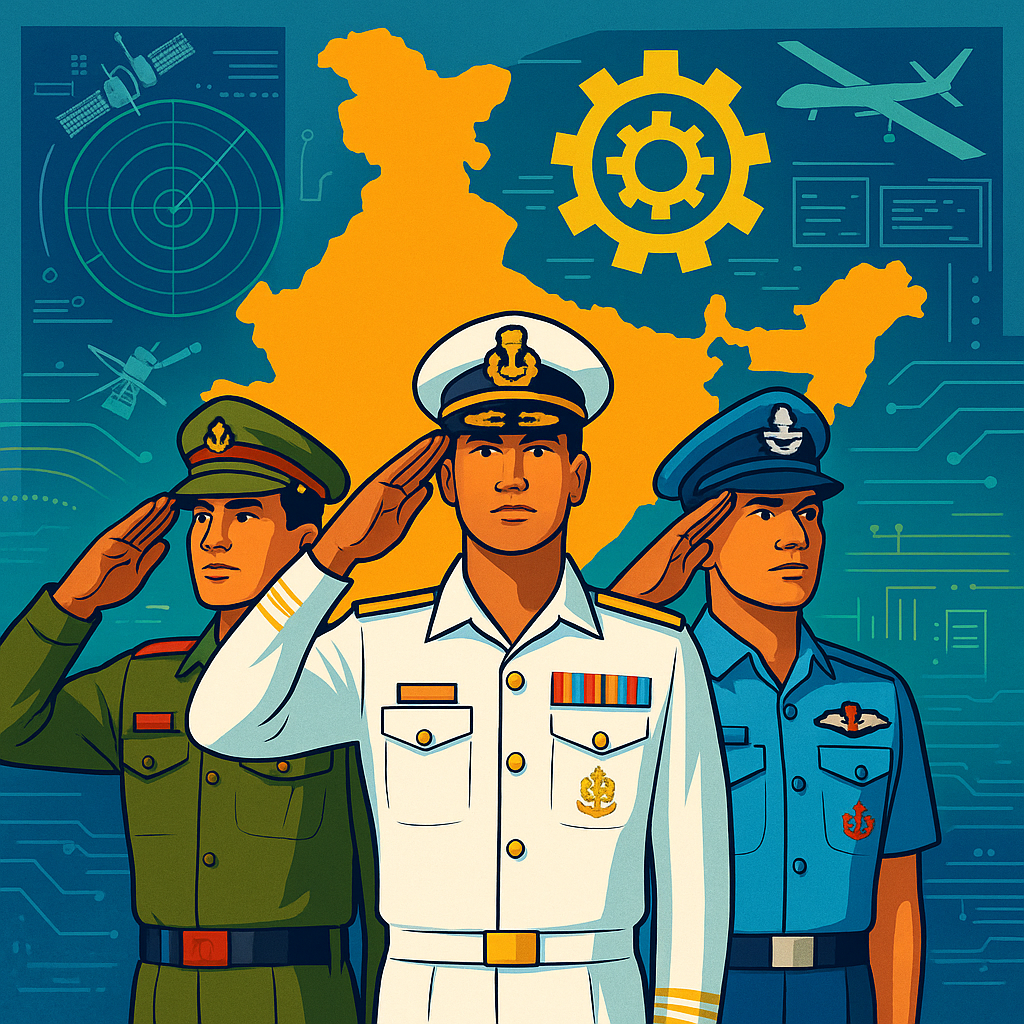
Since independence, India’s military command structure has undergone a gradual yet vital transformation. What began as a fragmented framework with individual service chiefs reporting separately to the Ministry of Defence — designed to safeguard civilian supremacy and avoid the risk of military overreach — has evolved through decades of strategic introspection and reform.
The Kargil conflict was a turning point, leading to the establishment of the Chief of Defence Staff (CDS) to promote jointness and synergy across the Army, Navy, and Air Force. Key legislative reforms, such as the Inter-Services Organisation (ISO) Act, have further empowered integrated commands by enabling unified administrative and disciplinary control.
Efforts are now directed at creating theatre commands, streamlining logistics, planning, and operations under unified leadership. Exemplary operations like Op Sindhoor showcase how jointness can enhance operational effectiveness. However, the journey toward full integration faces challenges, including administrative delays and the need for robust intelligence and diplomatic frameworks.
👉 In this issue brief, Vishwapramod and Dhruv Ashok examine:
- India’s defence integration journey post-1947
- The impact of the Kargil Review Committee
- The role and promise of the CDS and ISO Act
- Benefits and hurdles of theatre command implementation
- The case for a Joint Intelligence Theatre Command (JITC)
- A proposal for a Diplomatic Advisory Council to support defence integration
We invite you to explore this insightful brief. To access the brief, you can read it as an embedded PDF (laptops/desktops) or download the file as a PDF and read it on your device.
Dhruv Ashok is a PhD Research Scholar at CHRIST (Deemed to be University), Bengaluru, with interests in conflict resolution, historical narratives, and international politics. Viswapramod is also a PhD Scholar at the Department of International Studies and Political Science, CHRIST University, with an MA in International Relations. Views expressed are the authors’ own.
